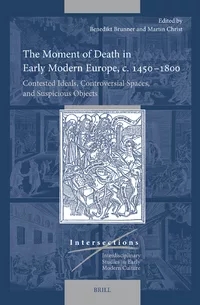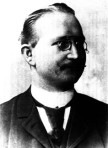 The Letter to the Hebrews tells us that God is trustworthy—that we can trust in Jesus’s defeat of death to lead us to eternal life. Complicating this crucial message, the letter’s enigmatic origins, dense intertextuality, and complex theological import can present challenges to believers wrestling with the text today.
The Letter to the Hebrews tells us that God is trustworthy—that we can trust in Jesus’s defeat of death to lead us to eternal life. Complicating this crucial message, the letter’s enigmatic origins, dense intertextuality, and complex theological import can present challenges to believers wrestling with the text today.
Amy Peeler opens up Hebrews for Christians seeking to understand God in this learned and pastoral volume of Commentaries for Christian Formation. Her fresh translation and detailed commentary offer insights into Christology, the relationship between Judaism and Christianity, and the letter’s canonical resonances. She pays special attention to how the text approaches redemption, providing consolation for the anxious and correction for the presumptuous.
Peeler explains the letter’s original context while remaining focused on its relevance to Christian communities today. Pastors and lay readers alike will learn how Hebrews helps them know, trust, and love God more deeply.
In a word, this is the finest, most practical, most useful commentary I have read on the book of Hebrews, and that I have enjoyed as much as I did Ernst Kasemann’s ‘The Wandering People of God’.
Her treatment of the text is simply majestic, accurate, insightful, and profound. For instance, her sage remarks (which I will leave to you to read in their entirety), on Hebrews 10:25, are elegant and prophetic. ‘This is the word of the Lord. Thanks be to God’.
She’s not afraid to deal with the ‘hard’ texts (like Hebrews 6:4-8 and 10:26ff) and yet she is wise enough to avoid being careless or cavalier. She opens her exposition of 6:4ff with this good guidance:
Maturity is necessary for engaging such a passage as this, yet it is frequently the young in faith who encounter it and react in fear, worried that through some sin they have fallen away and, therefore, can never return to God. If someone is heartbroken that they may have fallen away from the faith, that concern over one’s relationship with God is evidence that they have not fallen away (p. 164). Etc.
Her writing style is folksy and friendly and endearing and enlightening and kind and pastoral in the absolute best sense of that tortured word. Her theological insights are top notch. Her exegesis is virtually flawless. Her mind works, it seems, like a vessel of the Holy Spirit. She is inspired. And inspiring. I wish I could write as well as she does (and I have to confess, without pridefulness, that I am a darned good writer).
She fully discusses all the usual academic stuff. Date, author, audience, etc. And she does it all with utter clarity and absolute fairness.
There are footnotes, a bibliography, a subject index, an author index, and a scripture and ancient sources index.
Wheaton, where she teaches, is lucky to have her. If her classes are as engaging as her commentary, those kids are beyond measure most blessed. I hope they appreciate the gift they have in her.
Many have set themselves the task of commenting on Hebrews. No one in my experience has done it better than Peeler.
No one.













You must be logged in to post a comment.